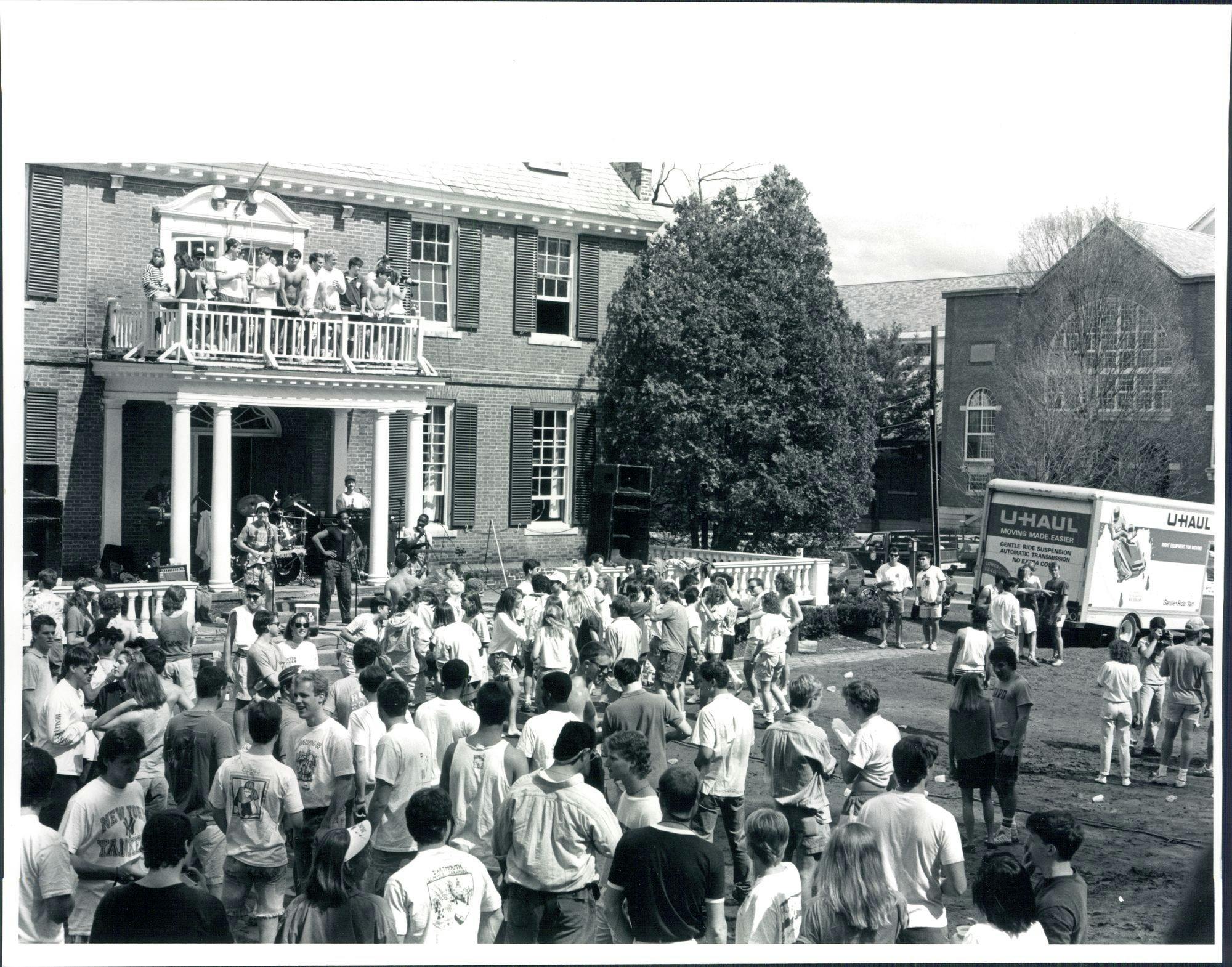National Lampoon’s “Animal House” is notoriously based on Dartmouth and its frat culture. I remember after being accepted to Dartmouth and doing research about it, people said to watch “Animal House” to get a sense of what it was like. Thank god I didn’t because I truly would have been terrified to even step foot on campus had I watched the movie.
While “Animal House” is not solely based on Dartmouth, it is, in part, based on one of the three screenwriters, Chris Miller’s, experience at the Alpha Delta Phi fraternity, of which he was a member during his time at Dartmouth. Miller graduated in 1963 and Alpha Delta was derecognized by the College in 2015. Greek life at Dartmouth has hugely changed during this period and was pretty unrecognizable to me in the film.
The film begins with two freshmen, Larry and Kent, seeking to rush a fraternity at the fictional Faber College. Initially, they are turned away by the most prestigious fraternity on campus, Omega Theta Pi, because they are unable to fit in. The members of Omega Theta Pi fit another stereotype at Dartmouth that still prevails: preppy, blonde and wealthy.
At their rush event, Larry and Kent are grouped with all the other men who are also clearly deemed unfit for the house. I found this stereotype to hold fairly accurately. Whilst rush operates differently now, I still see parallels in the exclusivity and superficial nature of it, how vulnerable a position it puts underclassmen in and the problematic racial undertones and discrimination.
Both Larry and Kent are invited to pledge Delta Tau Chi, where Kent is a legacy. What follows are hazing scenes that I found extreme and shocking to watch. Many of the scenes that involved hazing or partying seemed pretty nonconsensual.
Another factor that made these scenes quite unbearable for me was the objectification of the film’s female characters. During one scene, Larry was hooking up with a girl — who he would later find out was 13 — and she passed out. He then proceeded to question in his head whether he should continue hooking up with her or leave her alone.
I think this scene speaks to how hookup culture has always been a large part of fraternity culture and also Dartmouth culture. Sadly, similar issues surrounding topics like consent and assault are just as prevalent today.
In the film, the college dean despises the Delta house and wants to remove them from campus, since they are already on probation, have multiple campus conduct violations and a terrible academic standing. I found this tension interesting because it highlights the long history of resentment that the administrative system has had for certain fraternities and how disruptive this tension can be to the campus.
Intriguingly, it also accentuates how deeply ingrained and valued fraternity culture is at some schools and the disparities between fraternities that work with the administration and those that don’t. One of the scenes towards the end of the film emphasizes this when the Dean organizes a hearing and revokes Delta’s charter with the help of the Omega brothers who want to see the downfall of Delta.
This reminded me of the individual prestige fraternities pride themselves on and how they seek to enhance this reputation at the expense of others.
Overall, I can’t wholeheartedly say I enjoyed Animal House, but I found myself almost appreciating how progressive and inclusive modern Dartmouth seems to be in comparison. It shows that Dartmouth has definitely changed for the better; however, many issues surrounding topics like assault, hazing and discrimination are still just as problematic as they are in the film.
In the end, I couldn’t relate to much of the film given that it is targeted towards a white, male audience and the movie is from that same perspective, but I could see the humor it appealed to and definitely see the parallels with today’s Dartmouth.




